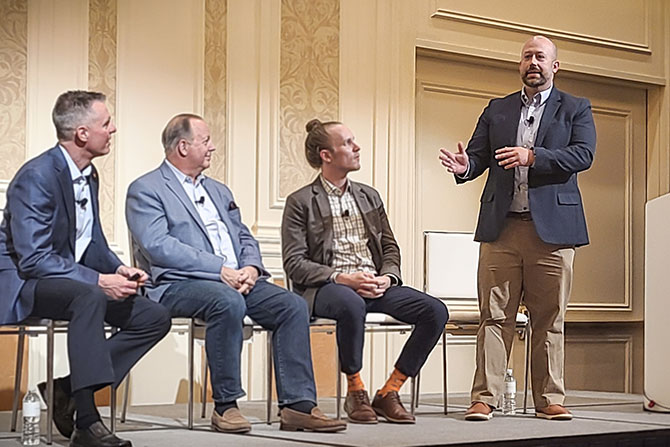When most banks established their retirement plan for their employees, they thought about the benefit that the plan will bring to those who work for the bank. They didn’t always consider the extent to which these benefits come with a cost. Of course, they know that plans cost money: not only do employees place their own earnings into the plan, but often the bank also contributes. And certainly, there are administrative costs. But banks who sponsor retirement plans should also clearly understand that they must run their plans with the greatest standard of care — or risk personal liability if they fall short.
Employers Are Fiduciaries
By default, bankers (plan sponsors) are fiduciaries of the retirement plans that they maintain. First, Section 3(16) of the Employee Retirement Income Security Act of 1974 (ERISA) defines “plan administrator” as the plan sponsor, unless a different plan administrator has been named. But in addition, ERISA Section 3(21) specifically defines a “plan fiduciary” as someone who has discretionary authority or responsibility for the administration of the plan. So, while it is possible — and often preferable — to delegate many plan-related duties to others, this ultimate discretionary authority rests with the bank: the authority to select suitable people or entities to carry out these delegated duties.
Considering the complexity of current retirement plan rules, it’s not surprising that many Human Resources (HR) departments get tripped up at times. Over the decades, more and more requirements have been layered on top of one another, sometimes even in the name of pension “simplification.” Some common administrative challenges of operating a retirement plan include:
- Enrolling employees when they become eligible.
- Timely depositing participant deferrals and employer contributions.
- Administering plan loan provisions.
- Amending and restating plan provisions.
- Properly correcting errors once they’re discovered.
These are just a few of the areas in which HR departments can misstep. The list of possible errors is nearly limitless. And as new plan provisions are added by Congress or through the regulatory process, there are even more rules that can trip up HR departments.
New Plan Provisions Create Even More Challenges
In the past few years, we have seen significant new provisions in the SECURE Act (SECURE 1.0), the IRS’s proposed Required Minimum Distribution (RMD) regulations, and the SECURE 2.0 Act. Below is a partial list of new provisions for 2024 and other items that are getting increased attention:
- New exceptions to the 10% early distribution penalty (e.g., for emergencies and for domestic abuse victims).
- Requirement to allow long-term, part-time employees to make salary deferrals.
- Changes to the cash-out rules and to providing small incentives to increase participation.
HR departments are ultimately responsible for monitoring more and more changes to the retirement plan rules. Even for those service providers who deal with these rules every day, the sheer amount of information can be daunting. But for bankers — who simply want to run their businesses without unnecessary burdens — effectively administering their plans can be overwhelming.
Pentegra Can Help
For many HR departments, plan administration is a challenge. Inevitably, errors can arise. After all, you don’t know what you don’t know. Fiduciary oversight and a team of professionals on board help plan sponsors avoid such errors in the first place.
If you would like to continue the conversation with Pentegra, please contact John Schafer, VP, national leader, Financial Institutions Channel, at john.schafer@pentegra.com or (317) 506-6875.
The information, analyses and opinions set out herein are for general information only and are not intended to provide specific advice or recommendations for any individual or entity. Nothing herein constitutes or should be construed as a legal opinion or advice. You should consult your own attorney, accountant, financial or tax advisor or other planner or consultant with regard to your own situation or that of any entity which you represent or advise.
As national leader of Pentegra’s Financial Institutions Sales Channel, John is responsible for Pentegra’s business development efforts to community banks and credit unions nationwide. With more than 25 years of experience built working with the financial community, John has developed a deep understanding of their needs. His unique perspective and expertise help financial institutions develop retirement plan and fiduciary outsourcing solutions designed to attract, reward and retain top talent. Prior to joining Pentegra, John was the leading sales representative for a private business. Before that, he worked in the banking industry for several years. John graduated from Purdue University in West Lafayette, Indiana, where he earned his B.A. in finance. He is also a Certified Financial Planner (CFP) and holds FINRA Series 6 & 63 licenses.









